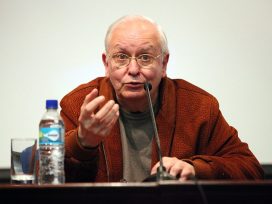
In the emergent “panspectric” order, human society is seen in terms of “information traffic”. It is not the actions of individuals that are observed, as in the Foulcauldian panopticon, rather those of the mass. Degrees of corporate and state surveillance are unprecedented; yet panspectric subjectivity also brings new forms of resistance.

